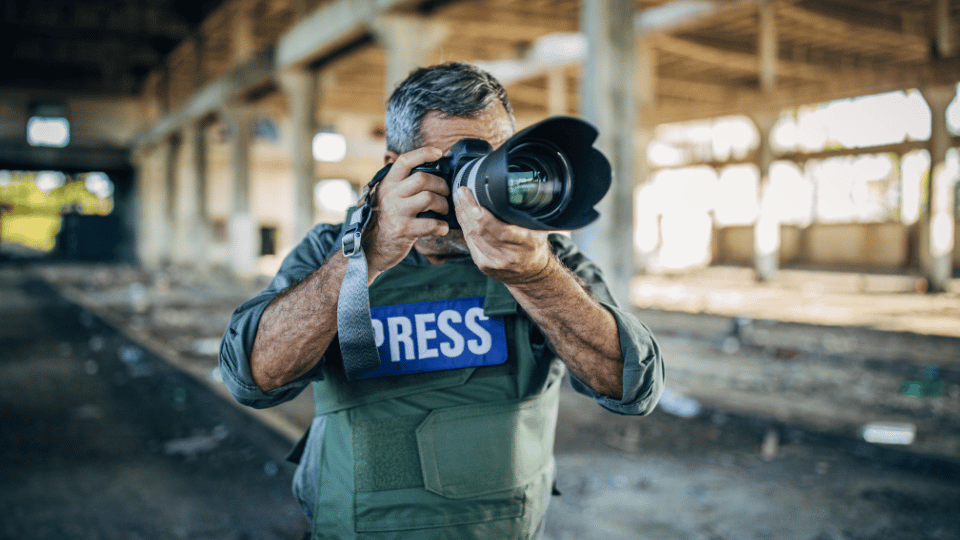Crisis journalism is a critical aspect of the field, requiring journalists to report accurately and swiftly during emergencies, disasters, or significant events. In times of crisis, the role of a journalist becomes even more crucial as they serve as a primary source of information for the public. Let’s delve into the realm of crisis journalism and explore the key roles and responsibilities within this dynamic field.
Breaking News Reporter
A breaking news reporter plays a vital role in crisis journalism by delivering real-time updates and developments as events unfold. These reporters are often the first point of contact for breaking news stories, providing initial details and continuously updating the public on the evolving situation. Being quick on their feet and possessing strong research and fact-checking skills are essential for breaking news reporters in crisis situations.
Investigative Journalist
Investigative journalists play a crucial role in crisis journalism by digging deep into the root causes of a crisis, uncovering hidden truths, and holding authorities accountable. Their in-depth research and analysis help provide a comprehensive understanding of the crisis, shedding light on critical issues that may have contributed to the situation. Investigative journalists bring a layer of depth and context to crisis reporting, ensuring that all angles of the story are explored.
Photojournalist
Photojournalists play a key role in crisis journalism, and photojournalists play a key role in capturing compelling images that convey the impact of a crisis. Through their lens, photojournalists document the human side of a crisis, capturing raw emotions, devastation, and resilience. Their photos provide a visual narrative that complements written reports, offering a holistic view of the crisis to the audience.
Broadcast Journalist
Broadcast journalists, including news anchors and reporters, play a critical role in crisis journalism by delivering news updates through television, radio, or online platforms. Their ability to convey information clearly, concisely, and with authority is essential in keeping the public informed during a crisis. Broadcast journalists must maintain composure, credibility, and empathy while reporting on sensitive and challenging topics, ensuring that accurate information is disseminated to the audience.
Social Media Journalist
In the digital age, social media journalists play a significant role in crisis journalism by leveraging social platforms to provide real-time updates, engage with the audience, and amplify important information. Social media journalists must navigate the fast-paced nature of social platforms, verifying sources, combating misinformation, and delivering content that resonates with online audiences. Their ability to harness the power of social media for crisis reporting is invaluable in reaching a wide audience quickly.
Multimedia Journalist
Multimedia journalists excel in crisis journalism by utilizing a combination of text, images, videos, and interactive elements to tell compelling stories. Their versatility allows them to adapt to different platforms and formats, creating engaging content that resonates with diverse audiences. Multimedia journalists bring a dynamic approach to crisis reporting, enriching the storytelling experience and capturing the attention of viewers across various media channels.
Data Journalist
Data journalists play a critical role in crisis journalism by analyzing complex data sets, statistics, and trends to uncover insights and patterns related to a crisis. Their ability to visualize data through charts, graphs, and interactive tools helps contextualize the impact of a crisis and provides a deeper understanding of the underlying issues. Data journalists contribute valuable insights to crisis reporting, offering data-driven perspectives that enhance the overall narrative.
Opinion Columnist
Opinion columnists provide a unique perspective in crisis journalism by offering commentary, analysis, and interpretation of events from a personal or expert viewpoint. Their opinion pieces stimulate thought, spark debate, and offer insights that go beyond the facts of a crisis. Opinion columnists bring a layer of interpretation and reflection to crisis reporting, encouraging critical thinking and dialogue among the audience.
Foreign Correspondent
Foreign correspondents play a crucial role in crisis journalism by reporting on international events, conflicts, and disasters that impact global communities. Their on-the-ground reporting provides firsthand accounts of crises unfolding in different parts of the world, offering a diverse perspective on the interconnected nature of crises. Foreign correspondents navigate cultural nuances, language barriers, and logistical challenges to bring international crises to the forefront of global media coverage.
Editorial Director
Editorial directors play a strategic role in crisis journalism by overseeing the editorial direction, content planning, and quality control of crisis reporting. Their leadership ensures that journalistic standards are upheld, ethical guidelines are followed, and editorial decisions align with the mission and values of the media organization. Editorial directors play a pivotal role in shaping the narrative of crisis journalism, guiding the storytelling process and maintaining the integrity of news coverage.
Conclusion
In crisis journalism, the collaborative efforts of journalists across various roles and specialties are essential in providing accurate, timely, and impactful reporting during challenging times. Each role brings a unique skill set, perspective, and contribution to the field, enriching the overall coverage of crises and ensuring that the public remains informed and engaged.
As the landscape of journalism continues to evolve, the role of journalists in crisis reporting remains indispensable in shaping public discourse, fostering transparency, and upholding the values of a free press.
Key Takeaways:
- Crisis journalism plays a vital role in keeping the public informed during emergencies, requiring speed, accuracy, and composure under pressure.
- Effective reporting in crises demands a mix of real-time updates, deep investigative work, and powerful storytelling across various formats.
- Visual and multimedia elements enhance the audience’s understanding by showing the human impact and complexity of events.
- Ethical standards, source verification, and factual integrity are essential to maintaining trust, especially in fast-moving or sensitive situations.
- Journalists must adapt to digital platforms, using tools like social media and data analysis to reach broad audiences quickly and clearly.
- Clear leadership and strategic editorial direction help ensure that crisis coverage remains accurate, responsible, and aligned with journalistic values.
- Collaboration across roles and platforms strengthens the overall quality and reach of crisis reporting, offering both immediate information and long-term context.
- As media evolves, training and preparation in multiple skills—from research to tech use—are key to meeting the demands of crisis journalism effectively.
Effective crisis journalism relies on a diverse range of roles, including breaking news reporters, investigative journalists, photojournalists, broadcast journalists, social media journalists, multimedia journalists, data journalists, opinion columnists, foreign correspondents, and editorial directors.
Each role contributes uniquely to the comprehensive coverage of crises, shaping public discourse and upholding the values of a free press. Consider enhancing your journalism skills by enrolling in the NYU | Modern Journalism online course and certificate program offered by Yellowbrick.








